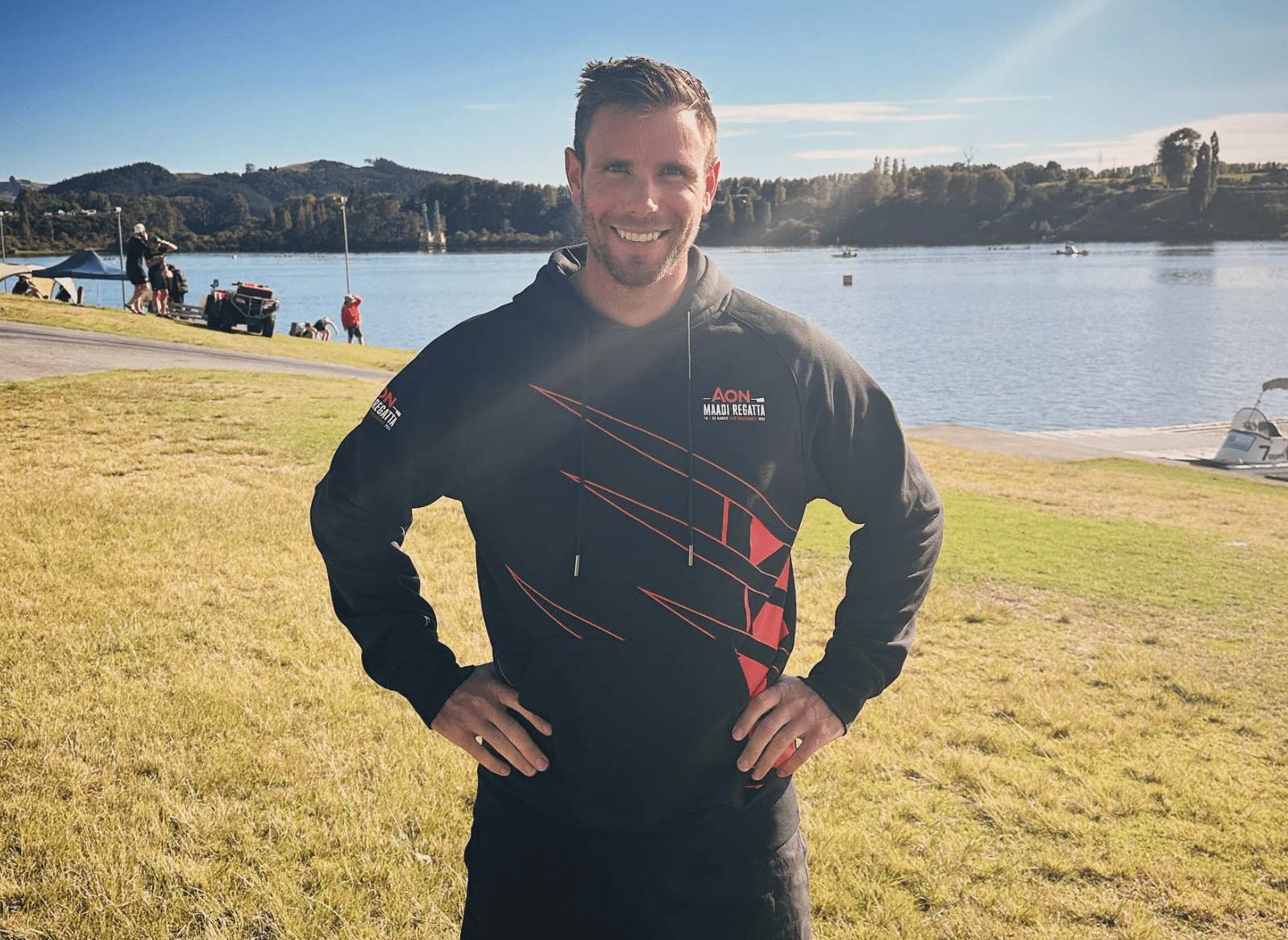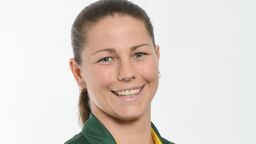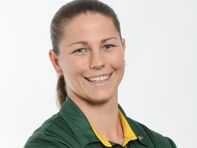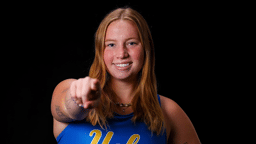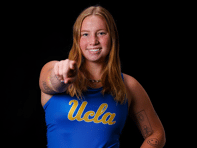Three years ago, Robbie Manson announced he had quit rowing, having twice represented New Zealand at the Olympic Games, won a World Championships medal, and set a world-best time in single sculls that still stands today.
He went into coaching, but he was gradually lured back into competition. On Lake Sava in Belgrade, Serbia, last weekend, his decision to return to the sport was fully vindicated, as he helped to qualify one of eight NZ boats for Paris 2024.
Manson and his double sculls partner Ben Mason squeezed through from the B Final and, pending confirmation of their joint selection expected in February, they will line up at Vaires-sur-Marne at the Olympics in late July next year.
Get off the sidelines and into the game
Our weekly newsletter is packed with everything from locker room chatter to pressing LGBTQ sports issues.
Among Manson’s many career accolades is the title of Outsports Male Athlete of the Year, which he claimed in 2017 after his record-breaking year. At the Rio 2016 Olympics, he had been one of just 11 out gay or bi men competing, among over 6,100 male athletes in total.
His commitment to empowering others has won him many admirers in the LGBTQ community, and it was no surprise to see news of his success in Serbia making headlines beyond rowing media.
Speaking to Outsports from Croatia, where he has been enjoying a well-earned break, Manson paid tribute to his teammate Mason, training partners Jack Ready and Jordan Parry, and coach Gary Roberts.
“Having a great team has been so important in terms of getting me back to the Olympics,” said Manson.
“Jack and Jordan support us but also push us hard in training every day, and along with Gary, we’re a really tight little group.
“But I’ve also had some really supportive people who I’ve been coaching over the past few years who really encourage and inspired me to get back on the water.”
Manson and Mason were second in both their heat and their quarterfinal to keep them on track for qualification. A fourth-place finish in the semi sent them down the B Final route, a familiar one for Manson, who will celebrate his 34th birthday next month.
“This achievement means a lot,” he said. “I’ve said about this result that I’ve never been so happy to come 11th before – the top 11 qualify for Paris, so we only just did it.
“In the past, I’ve felt as though even coming fifth is a failure. I think having some time away has given me more perspective.
“Also it’s about knowing where we’ve come from this year. For Ben, it’s his first elite World Championships and for me, I’ve just had two-and-a-half years off. We know we can get a lot better.
“In total, it’s the fourth time that I’ve qualified for the Olympics, which is pretty special. I was qualified and selected for Tokyo in 2020 but then after the postponement, I decided to retire so didn’t compete.”
In June, Outsports shared a blog by Manson in which he explained how his need to generate extra revenue to support his journey to Paris had led him towards joining OnlyFans, a decision he had announced on social media.
He was very clear that the content he would be posting would be “anything but adult entertainment.” In an interview published last month on Junior Rowing News, he explained how although it had become a valuable income stream, it was more important to “just have fun” on the platform.
“OnlyFans has been great so far,” Manson told Outsports. “It’s hard to know how it’s going to evolve long term but right now I’m really happy with it.”
Seeing another gay Olympic icon, Matthew Mitcham, take the OF plunge was one of the catalysts for Manson following suit. Several of the current crop of elite divers are also attracting subscribers there, while surfer Nick Vallejo and former college volleyball player Chance Wheeler have spoken about setting up pages.
What would be Manson’s advice to other athletes considering signing up for OnlyFans?
“I’d say the two things that have helped me are having a following already, but also being prepared to tell everyone and being really public about it.”
He’s comfortable to be seen through the lens of social media. 2024 will mark the 10-year anniversary of Manson telling the world he is gay; he chose Outsports as the vehicle for that wider sharing of information, having been out in rowing circles since London 2012.
He described taking that step to tell his New Zealand teammates as the “scariest decision” of his life, but he found the response to be so welcoming that he very quickly realized how the fear had been “all in my head.”
The representation that Manson continues to provide has been impactful. However, it hasn’t been accompanied by any significant increase in the visibility of gay or bi men at the Olympics. Compared to Rio 2016, the number competing went up by six at Tokyo 2020 – just 9% of the overall figure of 186 out LGBTQ athletes.
Being visible is always up to the individual and their circumstances, stresses Manson. While he feels he’s had a clear run after coming out, he believes the complex global picture of human rights and shifting societal attitudes are affecting other sportsmen like him.
“I think I’ve been lucky in that I’ve always had a supportive team so I wouldn’t really say there’s been a lot of challenges,” added Manson.
“I do feel like it’s becoming more normalized in society as a whole, but in saying that, there are some places where it isn’t and that’s why I think visibility is important.
“For example, we raced in Belgrade for Olympic qualification while Pride was also on. I couldn’t attend because I was racing but from what I heard, there were police in full riot gear as they were expecting a full anti-gay counter protest.”
There will be a bigger focus on Pride at Paris 2024 than at any previous Olympics. On May 17 — the International Day Against Homophobia, Transphobia and Biphobia — the Games’ organizing committee officially launched the Pride House France project, which will include a main venue in the host city as well as a ‘Mobile Pride House’ traveling to different locations and a digital destination. The recruitment of volunteers is already underway.
Such are the demands and restrictions placed on athletes while they are competing at a major event, many who are LGBTQ haven’t been able to visit a Pride House in person before.
Manson says he’ll be making every effort to get there this time around. Fundamental to the role of a Pride House is reflecting the contributions of out athletes past and present. If, as expected, he is confirmed for Paris, he would love for his experience as a three-time Olympian to be included.
“I don’t feel that I’m doing anything special, but I do think visibility is important, which is why I decided to come out publicly,” said Manson.
“I think it would’ve helped me if there was more visibility in sport when I was younger. I hope that it can help someone.”
Meanwhile, New Zealand’s Emma Twigg was also in action in Belgrade and successfully qualified for her fifth Olympics through the women’s single sculls semifinal, going on to take silver in the final.
The 36-year-old had struck gold in Tokyo, the first Games at which she had competed as an out LGBTQ athlete. Since then, Twigg and her wife Charlotte welcomed baby Tommy in April 2022.
For Great Britain, para-rower Lauren Rowles is a world champion once again. The 25-year-old and Gregg Stevenson won the PR2 mixed double sculls final, sealing one of four British spots at the Paralympics regatta in Paris.
Rowles is now a two-time world champion as well as a two-time Paralympic gold medalist.
In her post-race Instagram post, she thanked both Stevenson and also her “incredible fiancee” Jude Hamer, who will be hoping to make the ParalympicsGB women’s wheelchair basketball squad for next year’s Games. Rowles and Hamer announced their engagement in March.
